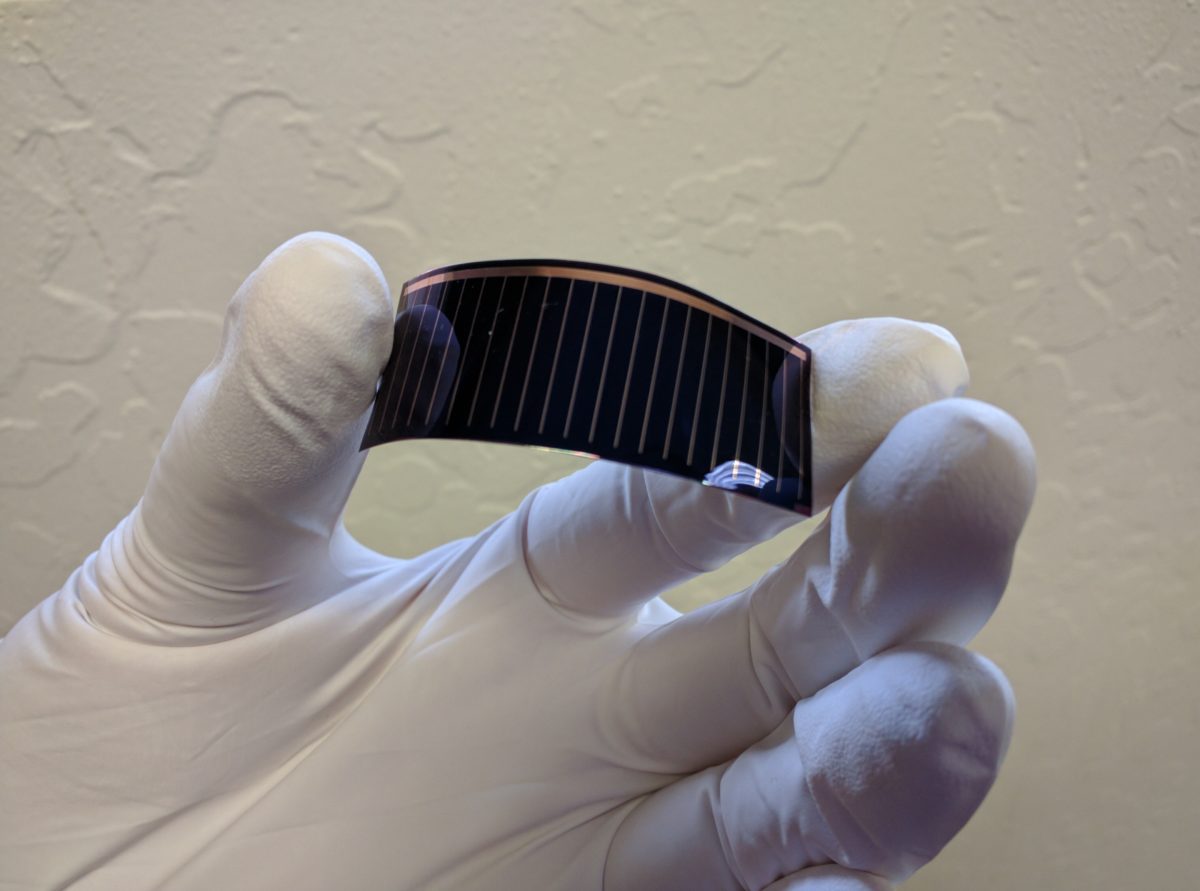The fourth generation of Alta Devices' single junction gallium arsenide cell technology is 40% lighter than the company’s previous offering, which it says means an improvement to its power to weight ratio of 160%.
Alta Devices, a California-based company, which was acquired by thin film producer, Hanergy in 2014, designed its cells to be integrated with vehicles – providing lightweight and high efficiency generation on a very small area.
With the new design, the company says it has been able to reduce material use from 240 g/m² to 170 g/m², without any reduction in performance. Alta Devices currently holds the efficiency record for a single junction solar cell, at 28.8%, which has stood since 2012. The company also says that reducing the thickness of the panels in this way allows for a smoother, more aerodynamic surface for vehicles.
“Autonomy in the air and on the ground is becoming a reality,” said Jian Ding, Alta Devices CEO. “While there has been much discussion, thought, and progress on the ‘eyes, ears, and brains’ for these vehicles, there has been little focus on autonomous power.”
The announcement from Alta Devices comes just a few weeks after Microlink Devices, another U.S.-based company working on lightweight gallium arsenide cell concepts, achieved 37.75% efficiency on a triple junction solar cell.
This content is protected by copyright and may not be reused. If you want to cooperate with us and would like to reuse some of our content, please contact: editors@pv-magazine.com.




1 comment
By submitting this form you agree to pv magazine using your data for the purposes of publishing your comment.
Your personal data will only be disclosed or otherwise transmitted to third parties for the purposes of spam filtering or if this is necessary for technical maintenance of the website. Any other transfer to third parties will not take place unless this is justified on the basis of applicable data protection regulations or if pv magazine is legally obliged to do so.
You may revoke this consent at any time with effect for the future, in which case your personal data will be deleted immediately. Otherwise, your data will be deleted if pv magazine has processed your request or the purpose of data storage is fulfilled.
Further information on data privacy can be found in our Data Protection Policy.